#learn japanese tips
Text
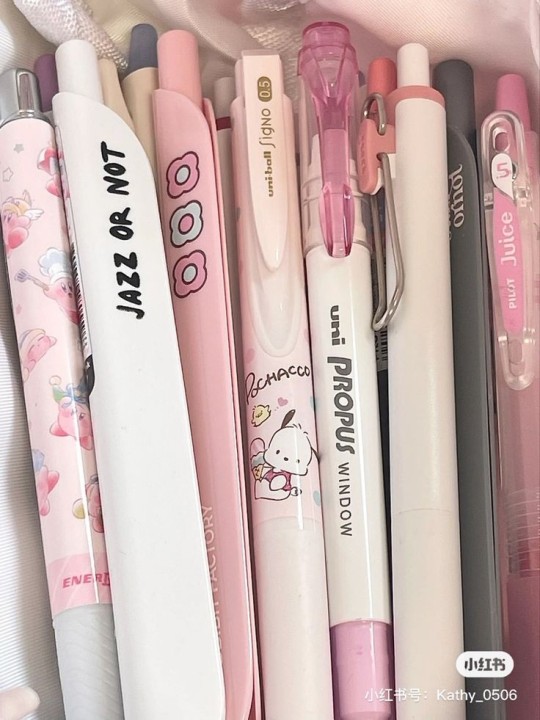
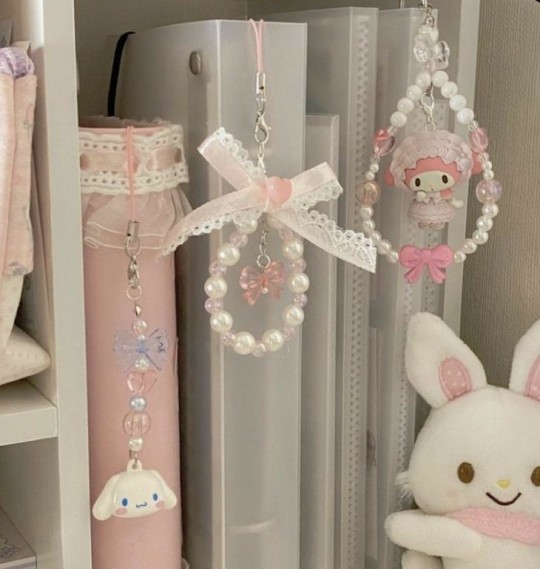
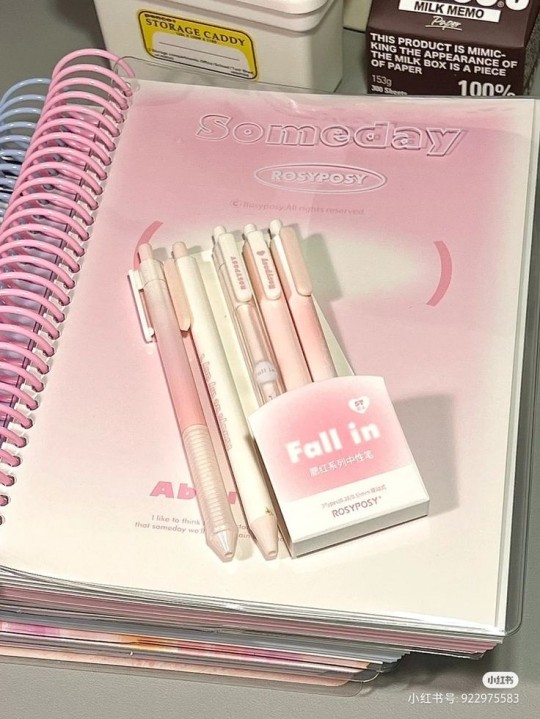
October Language Goals 🎀
I was thinking of posting a more structured study schedule for studying Japanese, but right now, I don't think that's a good idea because I'm not actually following a strict study routine or schedule. My available time to study varies so much on the day to day so having flexibility in how I study is definitely going to be and has been helpful.
These goals do help give me some useful guidance in how I use my study time, especially when I have a longer amount of time to study.
I am going to add an updated list of resources at the end of this post as I have found a good set of resources that are/will be helping me along this language journey.
🩷 Goals for the Month of October -
complete Genki I lesson 1 + lesson 2
build a flashcard list of 50-75 vocab in AnkiApp (currently 32/75)
learn 10-15 most common phrases/greetings
make a list of common things I say and find their Japanese equivalent
keep a 30+ day streak in Duolingo
keep a 30+ day streak in Busuu
post a speaking exercise per "chapter" in Busuu
test out WaniKani and see if I would like to utilize it as a resource
buy 2 to 5 manga in japanese (for future learning)
finish season 4 of Bungou Stray Dogs (for fun)
begin using AnkiDroid Genki I flashcard set in correspondence with the textbook lessons
start a beginner langblr challenge (either my own or find one to join in on)
I think this is a very doable list of goals given how busy my months and weeks have been. I will have a decent amount of free time, especially if I schedule all of my stuff efficiently. Now, on to a list of current resources!
🩷 Updated Japanese Language Resources -
Duolingo - I know she gets hated on but I love duolingo right now just for some daily practice on days where I have low energy or less time for studying. I turned off the romanji so I'm forcing myself to get more familiar either hiragana and katakana and I just find this app useful for vocab and silly daily practice.
Busuu - ohh, she has my heart right now. I actually bought premium for busuu for one year to give me time to actually use the app and get the most out of it. The audio is a little robotic sounding, but the exercises are helpful. They have speaking exercises that you can post to the community page and get native speakers to correct you! I honestly just love this app, and it also has a streak feature like Duolingo to keep me motivated to do some daily practice.
Renshuu - I still love renshuu as a resource because it’s the only reason I re learned the hiragana and katakana so fast, although I have not being using it as often lately. I still highly recommend the app! I want to keep using it and see how helpful it continues to be!
Language Drops - I like using this one to practice and learn some vocab every now and then. The free version only really lets you do five minutes a day but for a quick vocabulary review, that’s all I really need!
Genki I + II Textbooks and Workbooks - I've looked through the first lesson in Genki I and I honestly am so excited to use it once I have the time to sit down and study from it. My plan is to take notes from the textbook in my own notebooks, practice the exercises in the textbook and workbook, listen to the dialogue, and lots of flashcards!
Writing workbooks - I want to start using the two I have because I think it'll help me retain my knowledge of hiragana and katakana and even Kanji, once I get to the point where I'm learning Kanji.
Ankidroid/AnkiApp - These are two different apps, but they are both for flashcards. Their functionality is a bit different from each other, but they're still incredibly useful! I make my own flashcards in AnkiApp, but I use decks made by others in Ankidroid. This way I can keep studying what I already know but also can learn other things, if that makes sense? I'm using the Genki I deck on Ankidroid currently as I am preparing to use the Genki I textbook.
Google Keep Notes - I use keep notes to keep a record of my goals, resources, routines, etc. it’s so easy and simple to use and access, so I thought I’d mention it here
YouTube - I love watching YouTube videos about learning languages, thought I’m not advanced enough to start watching native Japanese content. Some YouTubers I like for their language tips are Tanya Benavente, Lidie Botes, and Zoe.languages. There’s a couple random videos about languages from, oh no Nina and The Bliss Bean, too.
that is all my goals and main current resources for the month of October. I’m thinking of starting like a language bullet journal, like a bullet journal/language tracking journal for Japanese? But I don’t know if I should? Maybe you guys can vote and give me some motivation to make a decision?
thank you guys! I did manage to complete most of my September goals, so that is definitely keeping me motivated right now! I haven’t had the most energetic of days but I think even a little bit of studying can be beneficial!
til next time lovelies! 🩷🤍
#pink pilates girl#pink pilates princess#self development#self care#self love#wonyoungism#health & fitness#mental health#physical health#it girl#language learning#language resources#language learning tips#learn japanese tips#japanese#language learning goals#langblr#japanese langblr#university student#college studyblr#studyblr#that girl#that girl energy#it girl energy#pink academia#pink aesthetic#girl blogger#girly blog#green juice girl#coquettecore
112 notes
·
View notes
Text
Look, I knew five languages by age 19 and now I am learning like 3 more. I work as a language instructor and a consultant. If I can give language learners only one advice, this is it.
STOP LEARNING WORDS ON THEIR OWN.
You're doing yourself a disservice by learning lists of "30 words you must know!" "100 most common words!" like it literally means nothing if you cannot use those words in an appropriate context with proper grammar. So what you actually need to do is learn those words via example sentences.
Of course, sentences have more words so you may think you're learning less but you're actually learning the way to use it in context. That's what's important.
Language is about communication, which also means if you want to learn languages, you have to observe how people communicate with each other universally. Native speakers never have a list of words they know and they don't count every single new word they've learned. So why are you doing it to yourself? What native speakers do is listen to the new word, remember the context they're spoken in, and keep using that word in that context. And that's why people go "wait, you can use that word LIKE THAT?" all the time. So you, a language learner, are also allowed to do that. I'm not even saying those word lists are useless but they're the most useful AFTER you've known most of them and are trying to go over them for practice etc. Native speakers do click on those word lists to check out how many words they don't know or to remind themselves of those words or to learn some facts about each word. That should be your goal as well.
Learn sentences. Learn them in context. Do not fall into the "I must know xx amount of words or I'm a failure at language learning" trap perpetuated by bloggers or youtubers or whatever. Have fun with it!
#language learning#studyblr#langblr#100 days of productivity#chinese studyblr#japanese studyblr#korean studyblr#how to learn#learning#academia#academic#academics#language study#language#languages#study tip#study#study motivation
299 notes
·
View notes
Text
why cant kanji just get like... downloaded into my brain
like im just a girl. why must i learn kanji 😞
#anyone have any tips that arent like study for 4 hours a day on anki?#langblr#language#language learning#japanese langblr#japanese language#japanese studyblr
180 notes
·
View notes
Text
Keeping up your Languages when you’re Busy
Confession: I’ve been slacking on Japanese recently because my life has been so hectic recently. So here are some of the ways I’ve been trying to keep it in my brain when I can’t dedicate a lot of time to studying.
CHANGE YOUR PHONE LANGUAGE
This applies to computers as well! This is the easiest way to ensure you see at least some of your target language every day. It’s good for any level, even beginners.
If you haven’t already done this, do it now. I understand that some things are important and you need to be sure you understand them — in that case, you can always change individual apps to have different languages, just look up the app name in settings.
Podcasts/Music
Find some podcasts in your target language and listen to them before bed, during your commute, whatever. There are lots of podcasts made specifically for learners, or you can look up topics in your target language to find a podcast you might enjoy.
Music is also an amazing way to hear your target language being used. If you find an artist you like, that’s another good way to study your TL! Follow them on socials, look up interviews with them, etc.
Talk to Yourself
Any spare minute you have, talk to yourself in your target language. It doesn’t need to be out loud. You can have a conversation with yourself, try to express how you’re feeling, make up stories, or just describe the things around you in your target language. This is also a good way to see what kind of vocabulary you’re missing.
Apps
Duolingo has fired a ton of translators and started using crappy AI translations — so they’re probably not the best choice.
I’d recommend dictionary app that has some sort of flash card feature is also good, or an anki deck. Drops is good, and has a lot of languages, but keep in mind you’ll need audio. Anything that’s easy to get out and do for even just a few minutes is perfect.
Apps won’t teach you a language on their own, but doing a little every day helps remind me the language exists and keeps it in my mind.
Texting/Writing/Posting
Whether your friends know your TL or not, force them to experience it by randomly messaging in Japanese! Or, if you feel fancy, download an app like “HelloTalk”, “Tandem”, “Speaky”, “Tabee”…there are a lot.
If you keep a digital journal (like I do…inconsistently), try to write some entries in your TL.
If you have a blog, which I assume you do, post in your TL. Even if you’re a beginner, you can make a sideblog dedicated to saying stuff like “I’m hungry” and “Green is my favourite colour” in your target language.
Open your notes app and just write random words you can remember or sentences you can string together.
I know it’s really difficult, and don’t beat yourself up because you aren’t studying as hard. A language can be a lifelong companion — you’ll have phases of studying constantly, and sometimes it’ll take the back seat, but there’s no rush to learn it. Have a great day :)!
#language#language learning#langblr#languages#learning japanese#learning Spanish#learning French#Quinn posts#language learning apps#language learning resources#language learning advice#language tips#foreign languages#language resources#studyblr#100
117 notes
·
View notes
Text
hiii i need a bit of help!
soo um… to sum it up; i never learnt how to study. and i want to learn how to study, mostlyyyy so i can learn japanese
could i have some study tips or techniques, maybe? i've already figured out i learn best when reading if that helps ┐(´◡`)┌ otherwise um… no clue ;;
so umh... help pls,,
#learning japanese#langblr#japanese langblr#language study#language learning#study tips#i am literlasly... im ngl im SO embarrassed to be p0sting this#i have no clue how to even like#begin#i feel like i should know how but idk how(◞‸◟)
101 notes
·
View notes
Text
Checklist for starting a language
- (if needed) learn the alphabet
- basic grammar for forming words and pronunciation
This process alone would take a few hours maybe 2-3 depending on the difficulty and the difficulty depends on your native language
- 1000 most common words in your native language (translate to target language)
Translate favorite medias into target language
This could be songs, movie quotes, scenes, or anything from your own writing.
Attempt to pronounce these by looking at the writing.
I’ve been making flash cards for alphabet and sounds
I’m new to language learning so if anything I said is less effective than another strategy please let me know.
#language learning#polyglot#study tips#korean language#learn korean#learn japanese#langblr#korean langblr
400 notes
·
View notes
Text
The Difference Between ということだ and というものだ
~ということだ has two different meanings. Let's take a look at each one and their sentences.
1st meaning: I hear that... / It is said that...
Nuance: You want to convey the information you have obtained from a source; either from the TV, news, or a person.
• ニュースによると、明日は雨が降るということだ。
It is said that it will rain tomorrow according to the news.
2nd meaning: It means that... / In other words,...
• 田中さんに「明日から来なくてもいいからね」と言われた。つまり、首ということだ。
I was told by Mr. Tanaka "You don't have to come in from tomorrow." In other words, I was fired.
• 最近、運動するとすぐ疲れて…年と取ったということですね。
Lately, I'm getting tired easily when I exercise. It means that I'm getting old.
---------------------------------------------------
Now, let's look at ~というものだ
Meaning: it is a general knowledge that... / it is common sense that...
Nuance: to describe something everybody knows as a general knowledge or a common sense fact.
• N5 を勉強している人が N2 に合格するのは無理というものだ。
It is impossible for someone who is studying N5 to pass N2.
• 責任をとるのがリーダーというものだ。
Taking responsibility is what a leader is all about.
#study japanese#japanese#jlpt#jlpt n1#jlpt n2#jlpt n3#jlpt n4#jlpt n5#language#learn japanese#nihongo#language lover#studyblr#study blog#study notes#tips#grammar#japanese grammar
29 notes
·
View notes
Text
How I read and enjoy books in my target language
Please note that I write about what works for me and share advice based on my own experiences. If you have a different opinion or if you use other methods, that's absolutely fine. Do whatever works for you.
Since some people asked me how I read books in my target languages, I would like to describe my way of reading in this post. I focus on reading for some time now and I'm very happy with my progress so far. This doesn't mean that I won't change a few things in the future (I'm constantly gaining experience and changing my learning style accordingly).
1. Choosing a book
Before I start reading, I have to choose an appropriate book, obviously. After trial and error I realized how important this step is. My ideal book is:
not too easy (I won't learn much)
not too difficult (if I can't follow at least the rough story I won't enjoy it)
interesting (motivation to read it)
I try to choose a book that is slightly above my level so that I can follow the story without looking up too many words but also learn new words. I don't need to understand everything, but I don't want to feel lost either. Balance is important.
2. Trying the first chapter
After choosing a book that seems to be appropriate, I try to read the first chapter (and sometimes the first two chapters, if they are short). I pay attention to things like:
Can I follow the story?
Is the story interesting?
Do I like the writing style?
If I can answer (most) questions like these with "yes", I continue reading the book.
Do I only understand single words or sentences here and there? Do I have no clue what happens? Then I put the book aside for now and choose an easier one. There's no shame in admitting that this book is too difficult at the moment. Deciding what I don't read is just as important as deciding what I read.
3. Reading
If the level of difficulty is okay, I start reading the book. In my experience, the first few chapters are always the hardest. I need time to get used to the writing style, the used vocabulary and the story.
In the case of the japanese version of Harry Potter, the beginning was difficult because of the writing style. But after two chapters, I began to enjoy the story and so I continued. That's why I always try to read at least the first chapter. A book that seems difficult in the beginning can be very enjoyable once I've read enough pages.
When I come across an interesting word or a sentence I like, I highlight it. I try to not highlight too much stuff, though. Two, maybe three words per page is usually my maximum. Enjoying the story is my number one priority. I can read several pages without highlighting anything, even though there are words I don't know. As long as I don't feel the strong urge to look up a word, I just continue reading.
In many cases I can understand words from context and learn them over time just by seeing them again and again. That's why I don't look up words immediately. I wait to see if they come up more often.
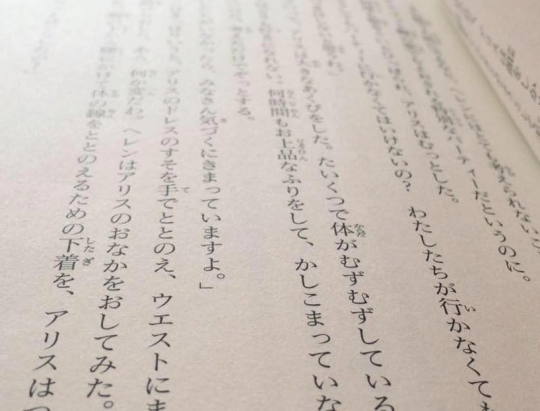
After I finished one chapter, I look up all highlighted words and read the passages that contain these words a second time. This way, I can connect the meaning with the full context. I don't try to memorize the word; I just try to understand it in this particular context before I continue.
Most of the time, I learn words unconsciously. If the book is easy enough, it's not so difficult to guess the meaning of certain words. While reading, I don't focus so much on words I don't know. I just focus on following the story. I may not always understand every detail, but as long as I can follow and enjoy the story, everything is fine. I learn so much by engaging with the language in a meaningful way and enjoying the content. Sometimes, I even forget that I am reading a book in a foreign language!
I have to add, that I'm already familiar with basic sentence patterns and that I have experience with reading books in my target languages. I finished the book "Remembering the Kanji" which makes it easier to guess the meaning of words. Knowing lots of kanji is a great advantage.
I have still a long way to go, of course, but this natural way of learning vocabulary may not work well at very early stages because you need a foundation first. After you are familiar with the dialogues and example sentences in your textbook, graded readers are a good choice in my opinion. Graded readers can make the transition from textbooks to easy books aimed at (young) native speakers easier.
Tip: One thing that helped me is to take a card, write down words I looked up and put this card into the book. When I read it a second time, I don't need to look them up again. Reading texts more than once can help to get more familiar with new words. Plus, writing helps me to remember words better. Reviewing them in their original context is much more enjoyable to me than reviewing them with flashcards. In the picture below you can see how my cards look like:

4. Enjoy!
I made enjoying books my number one priority. This is what helped me to make much more progress than before. All I need is enough reading material at the right level and a dictionary. As soon as I get absorbed in a book, I don't think about learning a language. I just want to enjoy the story. The more experience I gain, the better I become at understanding the language as a result. There's no need to force it or to hurry.
What I like about just enjoying a book and learning words naturally is that it's so simple. I don't necessarily need my computer, a certain software, add-ons, ... All I need is something I can read. After reading a chapter, I only look up a few words as I described above and that's it. Then, I often feel so motivated that I want to read more. I read much more than before because I enjoy it so much.
515 notes
·
View notes
Text
Hello! *shyly waving*
I've had this blog for a lil while and want to start posting original content asap but for now I'll try to make an intro post fisrt.
My blog is running on queue untill I gather some material to post. See you soon!
#studyblr#langblr#studyspo#study inspo#japanese#nihongo#korean#chinese#mandarin#study motivation#study notes#study space#language learning#language#languages#college#academia#student#bookworm#bujoinspo#study blog#study inspiration#study tips#studying#studyblr community#studyinspo#student life#study aesthetic#mine
28 notes
·
View notes
Note
hiii! <3 💕💞
im sure you have been asked this question a lot, so i apologize if its bothersome 🥹, but isnt it hard to study both chinese and japanese at the same time? ive been thinking about picking up on some chinese myself, but i always worry that ill end up confusing some readings of the chinese symbols with the japanese onyomi readings for kanji.
so i guess my question is, how do you manage? 🥺
and good luck for your february goals <333 💞💖🫶🏻
hi hana! どうもありがと, thank you so much 💖 大丈夫, no need to apologize, you're never a bother 🥺 to answer your question... yes, i am always confused 😂
BUT here's where it comes in handy that i'm also learning Korean! Because Korean 🤝 Japanese on phonetics and sentence structure but Chinese 🤝 Japanese on Kanji characters and their semantics!
so i've ended up in a situation where my listening skills for Japanese are better than my reading skills and if there's a Kanji character, then i probably know the meaning, but maybe not the pronunciation in Japanese because what i know from Chinese is overriding it 🤡 i plan to do a lot more Kanji review + Japanese comprehensible input to address this gap 👌
i'm barely at N5 in Japanese though (that's my goal for this year hehe) and i'm coming from the opposite perspective (Chinese > Japanese) than you (Japanese > Chinese), but i hope this is still helpful for you to at least get some ideas for how to tackle your own journey! 頑張ります! 💕
💌 if anyone else with experience learning Japanese + Chinese sees this and has anything to add please do! 🙏
#studyblr#japanese langblr#chinese langblr#korean langblr#asks#친구#study advice#learning languages#langblr#language learning#language study#language stuff#multilingual#polyglot#study tips
18 notes
·
View notes
Note
hi!! where did you learn Japanese? 🥺 ive only just started so im trying to improve as i go. any tips?
hello! so, i self-studied for about 8 months before i started studying it at university!
my tips are!
-learn hiragana and katakana make sure they’re solid! probably take about 3 weeks! but you might’ve already learnt them.
-increase input of the language! so watch and listen to more japanese, music etc. when i first started studying i would play this city pop playlist and this one, so now whenever i play it i can focus on japanese and study cos my brain is used to hearing it when studying it if that makes sense!
-i used memrise for a few months but Duolingo is good too, just to slowly implement the language before learning any grammar! in this time i suggest starting to learn some light vocab, like Quizlet>> N5 japanese vocabulary.
- to start learning grammar i started with the app, tae kim’s guide to japanese and then some minna no nigongo books, i also used an italki tutor for a few months (quite cheap language teacher online over video call).
- my other tips are make sheets of basic things like hello, how are you, the weather is nice etc, i feel like it really helps you get used to the basic structure of sentences and i felt like memrise was really good at this and that’s why i suggest using it over Duolingo because it teaches you things like “he likes books etc.” “cherry blossoms are pretty etc etc.”
- then when you’re feeling good with the basics start with some kanji! i was lucky enough to study japanese in lockdown where I could study 2-4 hours a day.
i will now show you all the resources i used like apps and books!
-best app for learning katakana and kanji!
-the Japanese app is great and I still use it now! so, i input kanji I’ve learnt onto a list and you can study it in flash cards! i even have a list for words and phrases i hear in anime and dramas and films, and interesting dictionary sentence examples.
-the grammar guide i used loosely at first and the vocab stack i used!
- the yellow textbook is the most important bc it has the grammar summarised
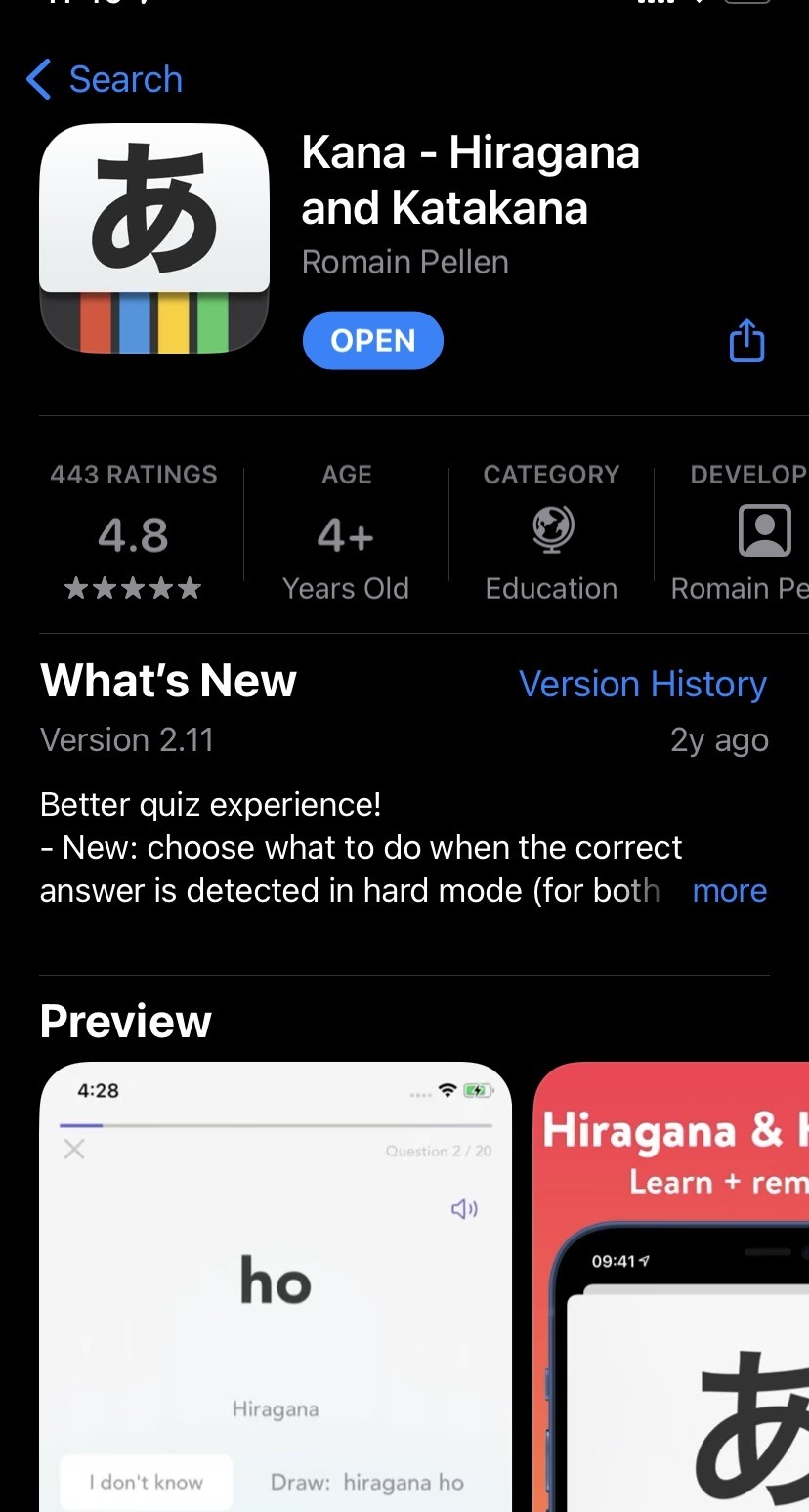

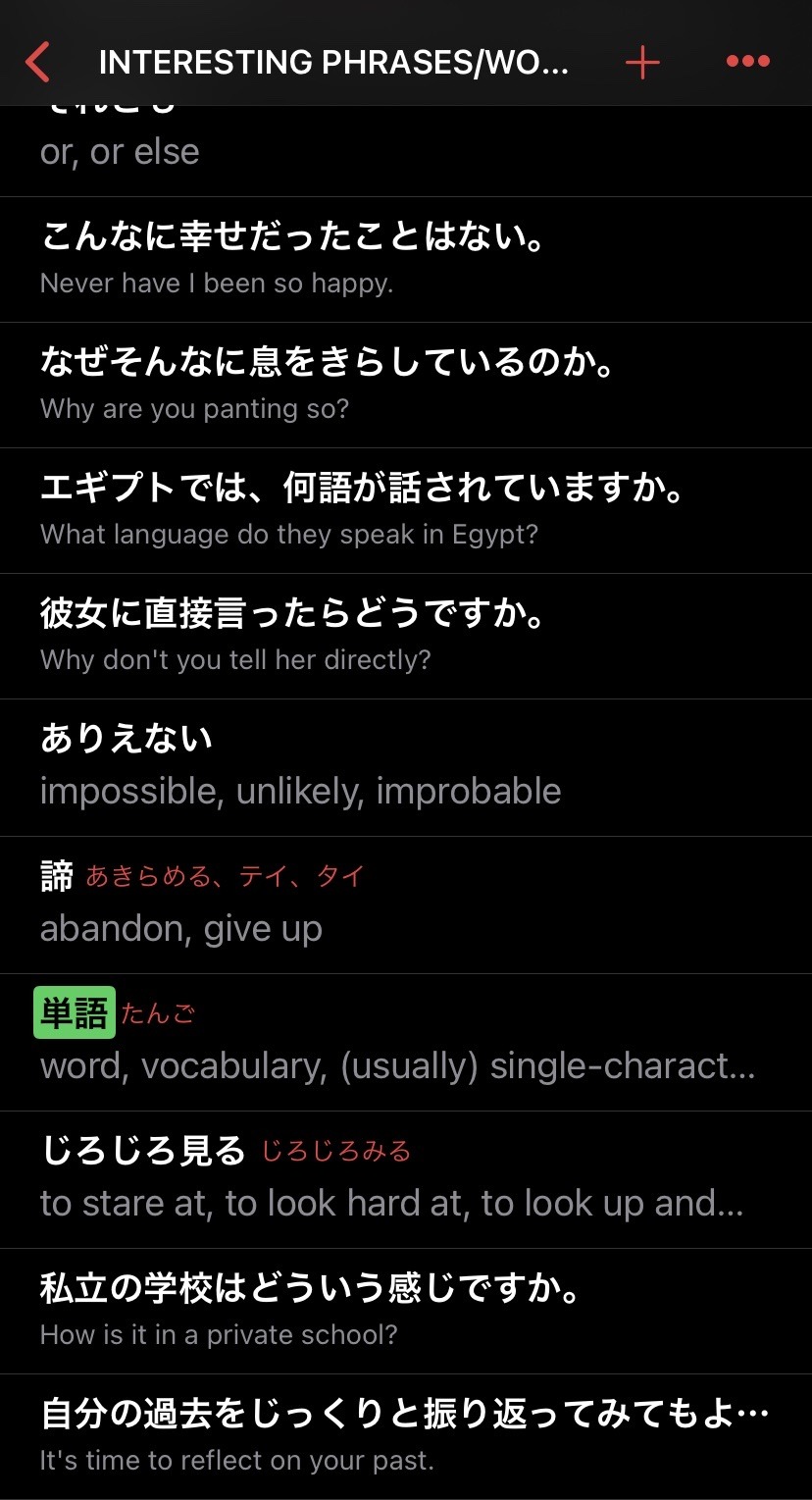
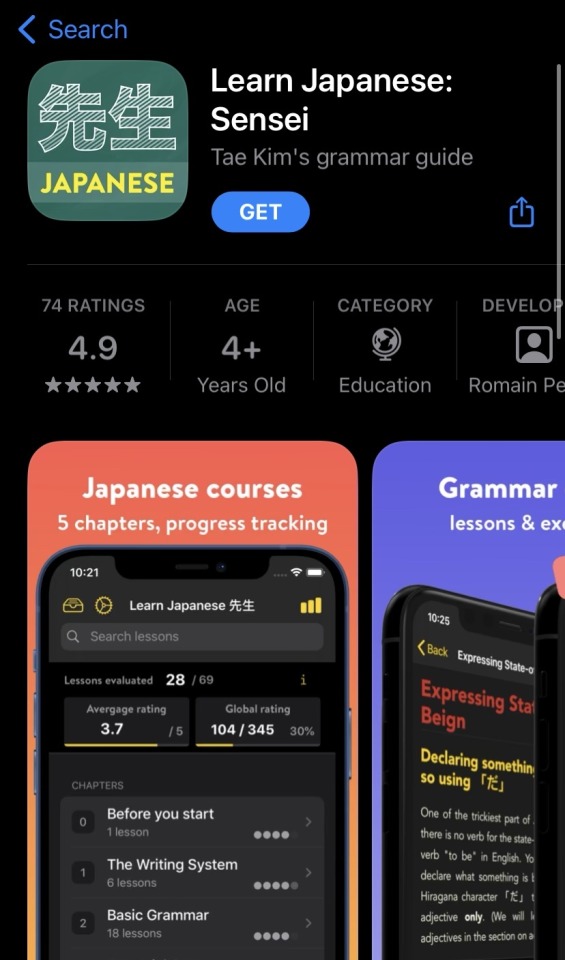

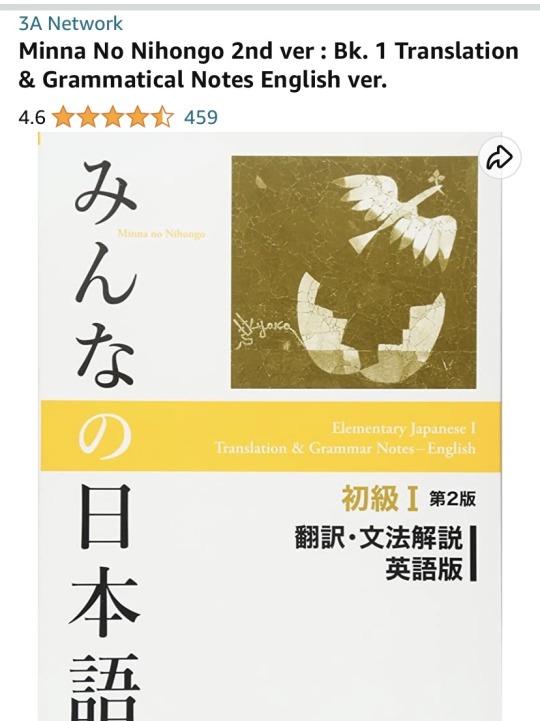
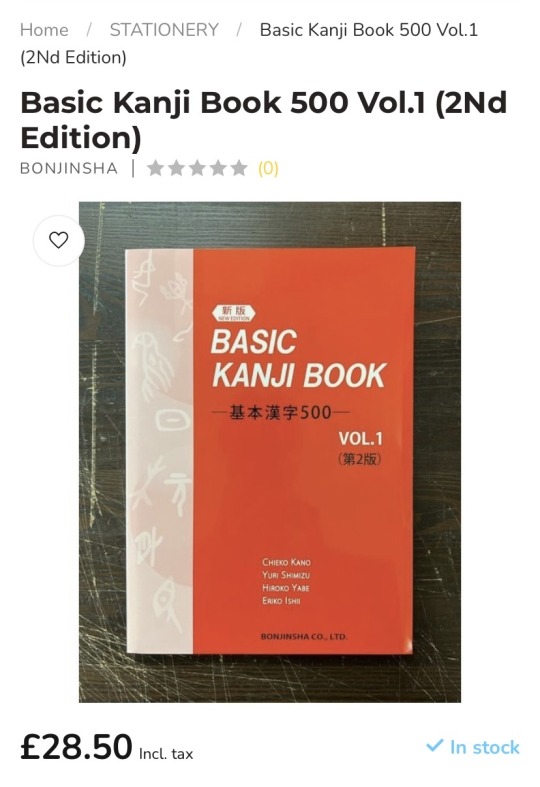

if you’d like to see what my notes looked like in the beginning or anything else please let me know I’d be happy to help! try your best! I’m not sure of your experience of language learning but it’s not always linear and some days you feel you’ve learnt so much and others like you’re set back and there’s a wall, if you feel a wall, take a break, take a few days, a week, your brain is like a sponge and I always feel like it soaks in and then you can continue when you take a break hehe, good luck <3
#anonreply💌#lourdes answers!#lourdes speaks on…!#learning Japanese!#japanese learning#Japanese learning tips
57 notes
·
View notes
Text
can anyone recommend a good textbook for learning Spanish? I really like studying using textbooks and I have two from when I took Spanish classes but they are the most unhelpful textbooks ever and I absolutely despise using them unless I have no other choice.
preferably I’d like a textbook that focuses on grammar as vocabulary is pretty easy for me to pick up given how widely Spanish is spoken in my city.
I’m also open to any music, song, movie, book, tv show, and any other spanish language learning material! I want to be able to speak spanish with some of the people I work with and I think it’s a great and beautiful language for me to learn overall, and definitely will be the most helpful!
*I am still going to self study Japanese during my six week break from classes, but I am going to try to divide my time between spanish and Japanese with a stronger focus on spanish! May even start a six week language challenge during my break to keep me motivated and accountable!
so if you guys have any recommendations for someone learning spanish (and even Japanese) , please comment/reblog this!
thanks in advance <3
#self development#spanish langblr#spanish language#spanish#langblr#langblog#language resources#foreign languages#language tips#language learning#japanese language#languages#spanish learning#learn japanese tips#language learning goals#language learning tips#languageblr#language study#spanish studyblr#japanese studyblr#studyblr#college studyblr#uni student aesthetic#university student#college student#student life#studyblr community#study blog#language skills#study tumblr
55 notes
·
View notes
Text
Friendly reminder that you don't have to learn ALL the readings of a kanji, learn the most common ones and learn with context (the words that use that reading)
100 notes
·
View notes
Text
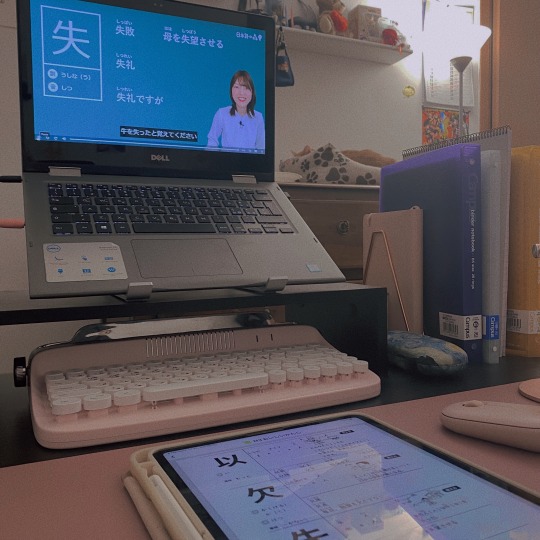
261122
am I finally falling in love with Japanese for the 474829th time? yes, but this time it’s a bit more special because it’s the first time I’m doing it after graduation. I’m free from any academic impediment, free to study my fav language of all times however I want and whenever I wan to. this sense of freedom after 5 (+ 5 of high school when I could only learn Japanese during summer break and with awful resources written for Italian natives) years is just pure bliss.
#studyblr#langblr#languages#study motivation#studyspo#studying#polyglot#language#japanese#languages tips#japanese language#study inspiration#language learning#日本語#日本語のブログ
176 notes
·
View notes
Text
So I got this app, NHK for school, and it’s wonderful immersion for Japanese learners.
It’s made for school kids. It goes from grade one to middle/high school. (I’m using grade one, personally.)
They have a variety of school subjects. My favourite are the grammar and vocab ones, specifically these guys
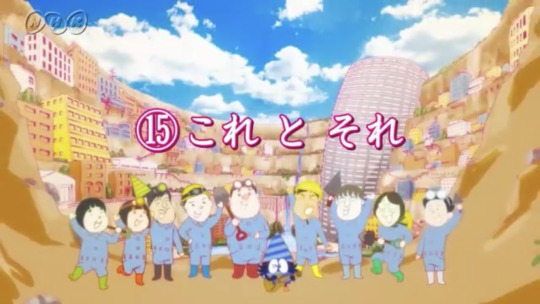
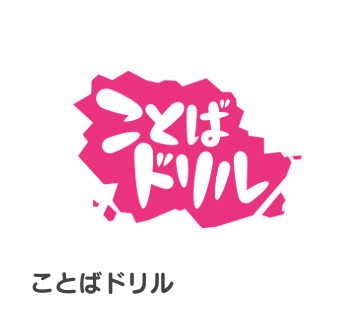
Although I don’t understand a lot of what’s happening (I’m a TOTAL newbie. Only three weeks of Japanese under my belt) the little practice exercises after each section is so helpful!
I’m sure it would be fun for a high level learner as well, and it’s a nice way to get some insight into what kind of stuff Japanese children are taught, ahaha.
#langblr#Japanese langlr#learn Japanese#japanese resources#free Japanese resources#japanese langblr#language learning#language tips#japanese#language resources#learning japanese#Japanese tips#NHK#NHK for school#quinn talks
433 notes
·
View notes
Text
When learning a language, I think it’s really inefficient to think about grammar or vocab as “X can be used in A, B, C, and D situations, and it means slightly different things in each situation”. Your brain simply can’t recall all the possibilities quickly enough for this way of thinking to be practical. In reality, out of A, B, C, and D, it probably only gets used commonly in, say, situation A and B. And even then, it’s probably more practical to consider the A and B uses of the grammar/vocab separately, rather than as multiple uses of a single thing. The most egregious example I remembering encountering when I was just starting learning Japanese, was an article about the grammar のだ.

This screenshot is from the Wasabi Online Grammar Reference, which I used when I was starting to learn Japanese seriously, and I think it’s a great resource. However, I think they went a bit overboard on this article with linguistic detail. It’s simply not practical to try to memorise all the possible uses of のだ. The article lists 5 possible functions of のだ:
Expressing Reason
Interpretation
Discovery (Non-Physical Objects)
Summary (Rewording)
Preliminary Remarks
It’s probably linguistically accurate to break it into 5 different categories, and I can see how this categorisation would be valuable to a linguist studing the mechanics of Japanese (an engineer). But to someone whose goal is to communicate in Japanese (a driver), it’s not very useful. I’d break it up into two total functions, like this:
Publicising your internal monologue (i.e. explaining something to yourself out loud)
Explaining a situation you’re both witnessing (one of you may be the cause ofthe situation)
I think putting the use of のだ into these two categories makes it much easier to understand how it’s used. The five categories of the original article were completely overwhelming to me as a language learner, and I honestly think it hindered my understanding of the grammar, because it caused me to make incorrect assumptions about its common use. The article emphasised each category equally when the “explaining something to yourself” use case is overwhelmingly more common, plus it caused me to overthink every time I encountered it in the wild (”which one of those 5 cases is this?… and what were the 5 again?…”).
#japanese#japanese language#japanese langblr#langblr#language learning tip#learning japanese#language acquisition#language learning#日本語#grammar#japanese grammar#jimmy blogthong
107 notes
·
View notes